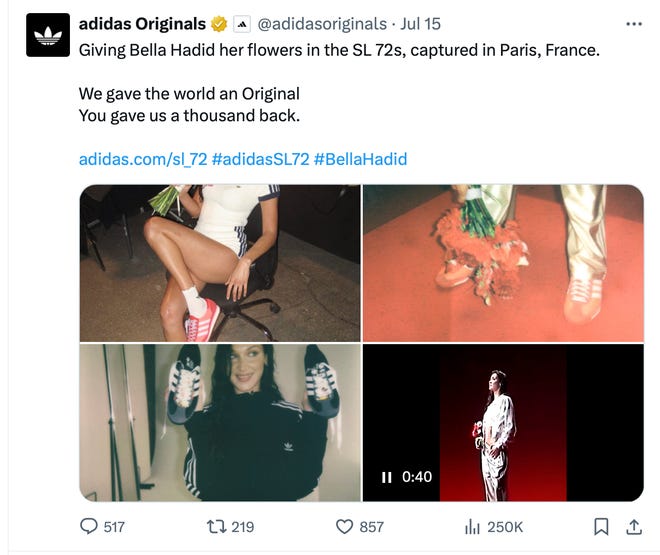Imagine being an Israeli Olympian.
Imagine living your whole life knowing that the dream you train for and strive to achieve every day is inextricably linked to the most tragic event in your country’s history: the terrorist attack at the 1972 Munich Games that claimed the lives of 11 members of Israel’s Olympic team.
Imagine trying to prepare for the Olympics while the country has been in grief and chaos for the past nine months since Hamas terrorists broke through the border with Gaza on October 7 last year, killing some 1,200 Israelis in a surprise attack and taking 250 hostage.
Imagine seeing many people around the world turn against your country because you responded to an existential threat with strong military action.
Now imagine preparing to go to France, a country rife with rife anti-Semitism against the roughly 500,000 Jews who still remain in the country, knowing that any success will be controversial because of government excesses and the terrible humanitarian toll of the ongoing war in Gaza, where even attending the world's biggest sporting event could make some people ostracized and targeted.
Israeli athletes competing in the Paris Olympics will have a hard enough time, they don't need one of the most iconic brands in sports to join in anti-Semitic attacks.
It is outrageous that Adidas released its SL 72 sneakers this week and put a well-known anti-Israel propagandist at the front of its marketing campaign.
It was a choice, and one that neither Israelis nor Jews around the world could ever tolerate.

Mistakes happen in marketing, even at major companies with layers of PR experts, but corporate provocations like this one are so bizarre and so patently inappropriate that the logical conclusion is that Adidas wanted to make some kind of sick, twisted statement that goes against everything the Olympics are supposed to represent.
First off, Adidas re-releasing the original SL 72 sneaker that debuted at the 1972 Olympics should never have happened in the first place.
Yes, the Munich Games were a key moment for the German company, as the trefoil logo was launched there and would remain associated with Adidas until the brand was rebranded with three stripes in the 1990s.
But to the rest of the world, the 1972 Olympics are primarily associated with one thing: the massacre in which eight Palestinian terrorists broke into the Olympic Village, killed two people, and took nine hostages, all of whom were killed in a failed rescue attempt.
It was one of the worst moments in Olympic history, and more than 50 years later the outrage remains.
Adidas may be a German company proud of its Olympic tradition, but it doesn't need to commemorate the 1972 Olympics with a retro marketing campaign linking Munich with Paris. It shouldn't be commercialized for Adidas' profit. The Olympics should be remembered as a historic security failure, a frightening but necessary warning that the dangers facing Israelis don't necessarily end at the border.
Secondly, Adidas' choice to use model Bella Hadid as the face of the shoes' ads is completely outrageous: 27-year-old Hadid is American; her father, Mohammed, was born in Nazareth but the family fled to Syria during the war shortly after the founding of Israel.
This background has influenced Hadid's understandable and rightful pro-Palestinian views and anger at the current situation in Gaza. But her social media posts to her 61 million Instagram followers are filled with anti-Israel epithets, false claims and anti-Semitic tropes. Last year, Bella's sister, model and social media influencer Gigi Hadid, was named one of three finalists for the Stop Anti-Semitism watchdog's Anti-Semite of the Year award.
In other words, at a time when much of the world is simmering with anti-Semitism and anti-Israel hatred, it does not seem at all coincidental that a well-known anti-Israel figure on social media would be chosen to front an advertising campaign that evokes for many the time when 11 Israelis were killed by terrorists at the Olympics.
Adidas, incidentally, was founded by Adolf Dassler, who joined the Nazi Party in 1933, the same year Hitler came to power. The modern-day company ended its partnership with Kanye West in 2022 after West made a series of anti-Semitic remarks, stating that “Adidas does not tolerate anti-Semitism or any other hate speech.”

Given that West and Adidas understood that its historical ties to the Nazis would bring the company under increased anti-Semitism scrutiny, one would expect company executives to be hypersensitive to any association that could be interpreted as anti-Semitic.
But in this case at least, you'd be wrong.
In a media statement, Adidas acknowledged that “any association with a tragic historical event was completely unintentional and we apologize for any offense or distress caused,” and promised to adjust the campaign in the future.
Given the global situation and the unfortunate reality of France being a hotbed of anti-Semitism, it would be better to cancel it altogether ahead of the Olympics, when the vulnerability of Israeli athletes will be impossible to ignore.

